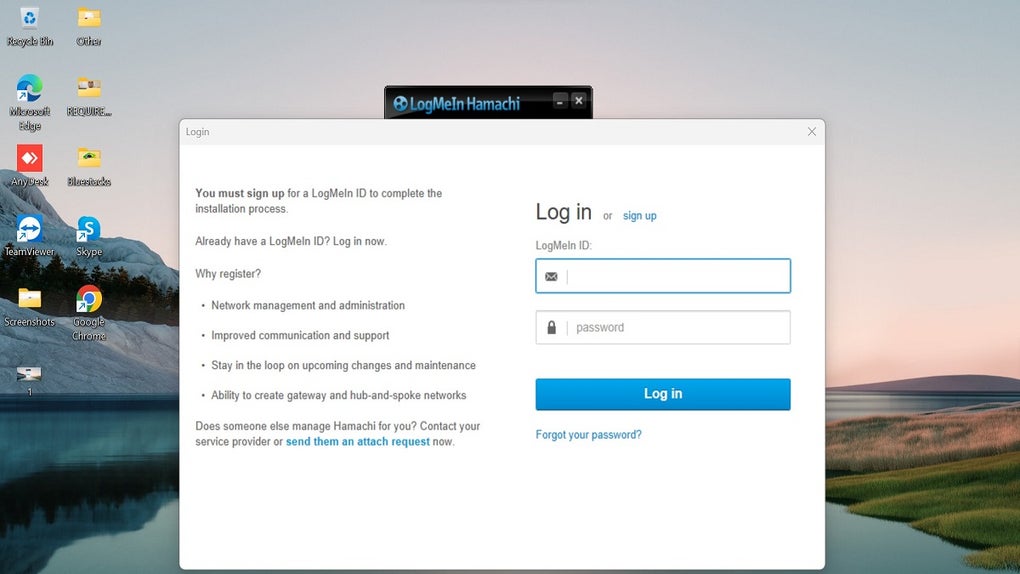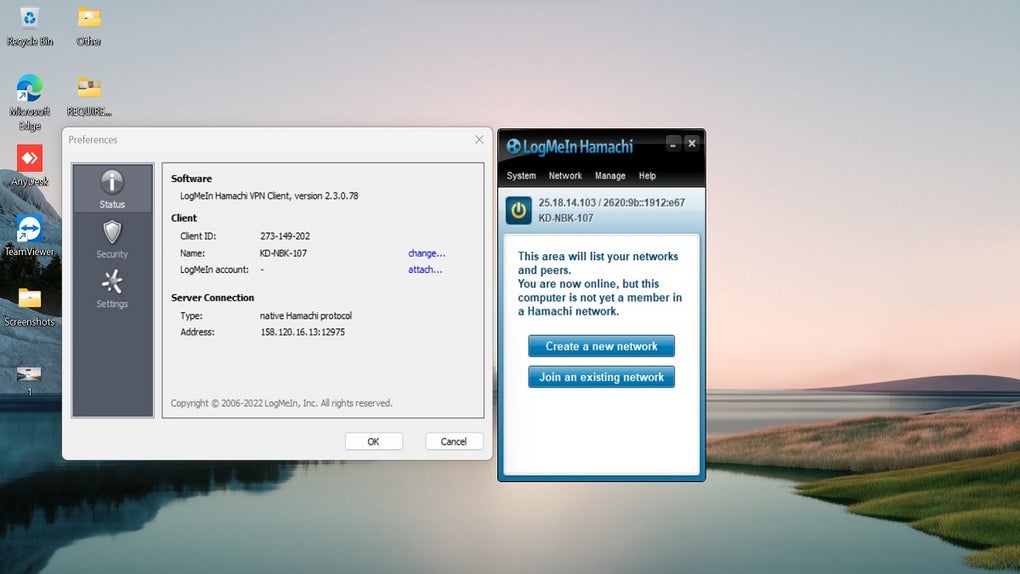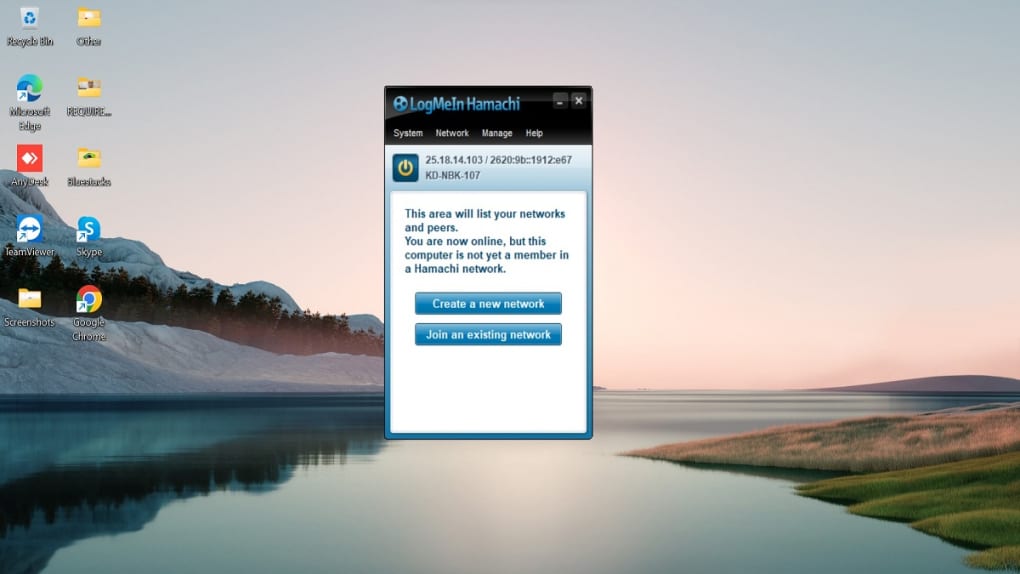Hamachi, a free hosted VPN service developed by LogMeIn Inc., offers a secure and flexible way to extend networks, catering to both personal and professional needs. Unlike traditional VPNs that primarily focus on individual user privacy and anonymity, Hamachi excels at creating virtual private networks (VPNs) connecting multiple devices, simulating a local area network (LAN) even when geographically dispersed. This makes it ideal for distributed teams, remote workers, and gamers alike, enabling secure file sharing, collaborative work, and lag-free online gaming experiences. This detailed guide explores Hamachi’s features, functionality, security, and compares it to other VPN solutions, allowing for a comprehensive understanding of its strengths and limitations.

Hamachi’s Functionality: Building Your Virtual LAN
Hamachi operates as a desktop application that simplifies the creation and management of personalized VPNs. It establishes a secure, encrypted connection between computers, effectively bridging geographical distances and allowing them to communicate as if they were on the same network. This is achieved through a sophisticated virtual tunnel, employing AES 256-bit encryption, a standard widely regarded as highly secure, rivaling the encryption methods used by prominent commercial VPN providers such as NordVPN and ExpressVPN.
This robust encryption safeguards sensitive information transmitted between connected computers, ensuring privacy and security, even across public networks or those behind Network Address Translation (NAT) firewalls. This feature is particularly crucial for businesses handling confidential data and for gamers concerned about the security of their online interactions.
Hamachi’s Network Configurations: Gateway, Hub-and-Spoke, and Mesh

One of Hamachi’s key advantages lies in its flexible network configurations, enabling users to tailor their VPN to their specific needs. The software offers three distinct network types:
1. Gateway Network: This configuration provides remote users with secure access to private networks or LANs via a centralized LogMeIn Hamachi gateway. The key benefit here is that it doesn’t require modifications to existing firewalls or network routers, making setup simpler and more compatible with pre-existing network infrastructure. This is particularly useful for businesses that may have stringent IT policies or complex network setups.
2. Hub-and-Spoke Network: In a hub-and-spoke network, designated computers act as hubs, connecting to other computers (spokes). This model allows for centralized control over network access and usage. The hub computer acts as a central point of access, allowing administrators to manage user permissions, passwords, and network access, providing granular control over who can access which resources. This hierarchical structure is beneficial in larger organizations where controlled access and management are essential.
3. Mesh Network: The mesh network option offers a different approach, connecting each computer directly to every other computer in the network. Unlike the hub-and-spoke model, there’s no central point of connection. Instead, each computer forms multiple connections, creating a resilient and interconnected network. This configuration offers faster data transfer speeds in certain scenarios compared to the hub-and-spoke model because data doesn’t need to transit through a central hub, making it ideal for applications requiring rapid data exchange.

Hamachi’s Applications: Gaming and Beyond
Hamachi’s versatility extends beyond its professional applications, finding significant traction amongst online gamers. The ability to create virtual LANs is particularly beneficial for multiplayer games, mitigating latency issues and improving overall gaming performance. By establishing a direct, secure connection between players, Hamachi helps create a lag-free gaming environment, enhancing the overall experience. This is particularly valuable for competitive gamers and streamers, where even minor latency fluctuations can significantly impact performance.
Beyond the performance benefits, Hamachi also offers an additional layer of security against distributed denial-of-service (DDoS) attacks, which are a common concern for online gamers. By creating a private network, Hamachi limits the exposure of game servers to external attacks, making it a safer environment for online gameplay.
Hamachi’s Security and Privacy Considerations
Security is a paramount feature of any VPN service, and Hamachi employs several security measures to protect user data. All communication within a Hamachi network is encrypted using AES 256-bit encryption, ensuring that data remains confidential and secure from unauthorized access. The peer-to-peer (P2P) protocol used further enhances security, minimizing vulnerabilities associated with centralized servers. This ensures that only authorized users can connect to the designated network, reinforcing the privacy and security of the network’s data.
However, like many free VPN services, Hamachi collects some personal data for marketing and analytical purposes. This includes IP address information. While the encryption protects data in transit within the Hamachi network, it’s crucial for users to be aware of the data collected by the service and the implications for their privacy. The trade-off between convenience and ease of use versus full privacy is a significant consideration for potential users.
Hamachi vs. NordVPN: A Comparative Analysis
Hamachi and NordVPN represent different approaches to VPN technology. Hamachi excels at creating private networks for connecting multiple devices, ideal for LAN-based gaming or secure file sharing within small groups. Its setup, while requiring some technical understanding, is highly customizable and, for the standard version, free. However, its focus is specifically on establishing these direct connections, rather than the broader internet privacy protection offered by other VPN services.
NordVPN, on the other hand, is a commercially available VPN service that prioritizes user privacy and anonymity. It encrypts internet traffic and masks the user’s IP address, allowing for secure browsing and access to geo-restricted content. NordVPN is significantly easier to set up and use, offering a user-friendly interface and a wide range of features focused on individual user security. It’s a paid service, providing a higher level of anonymity and a global server infrastructure which Hamachi lacks.
Choosing between Hamachi and NordVPN (or other similar services) depends entirely on individual needs. If the priority is creating a secure, private network for a limited number of devices, Hamachi is a powerful and cost-effective solution. If the primary need is enhanced online privacy and anonymity, along with access to a global server network, a commercially available VPN such as NordVPN is the more suitable choice.
Hamachi: A Budget-Friendly VPN Solution for Specific Needs
Hamachi provides a valuable and cost-effective VPN solution tailored to specific use cases. Its suitability for connecting remote computers makes it a practical option for businesses with geographically distributed teams, facilitating seamless collaboration and secure file sharing. The ability to deploy software remotely further enhances its utility for IT management. The software’s intuitive interface simplifies network management, allowing efficient troubleshooting and administration.
For gamers, Hamachi offers a cost-effective solution to address latency issues and enhance security during online gameplay. Its ability to establish virtual LANs promotes lag-free gameplay and provides an additional layer of protection against DDoS attacks. In summary, while Hamachi may not be the perfect solution for all VPN needs, its strengths in specific areas make it a valuable tool for those seeking a secure and cost-effective option for connecting multiple devices in a private network environment. However, users should carefully consider its privacy implications and weigh them against their individual security requirements.
File Information
- License: “Free”
- Latest update: “July 23, 2025”
- Platform: “Windows”
- OS: “Windows Vista”
- Language: “English”
- Downloads: “26.1M”
- Size: “14.53 MB”
















